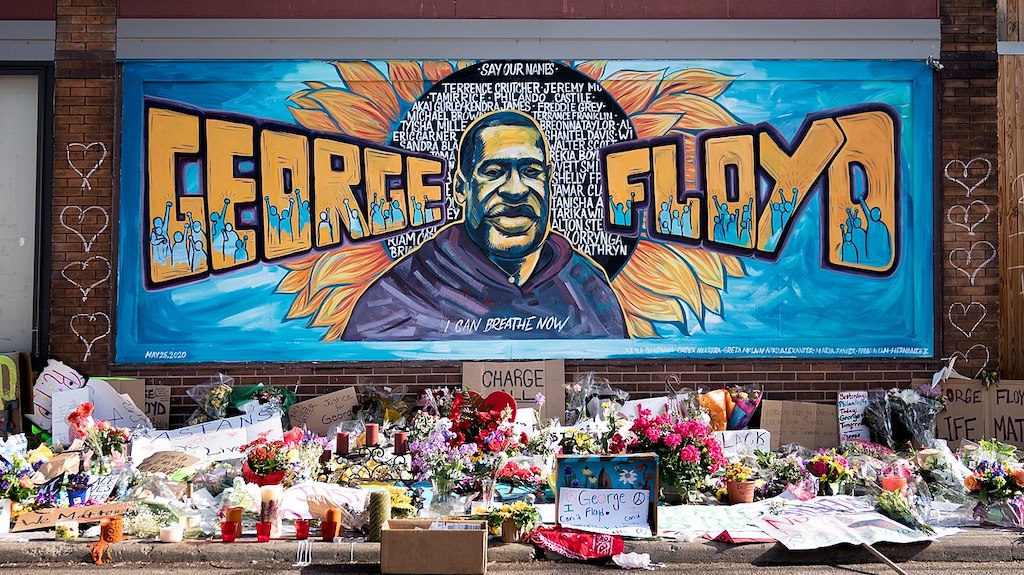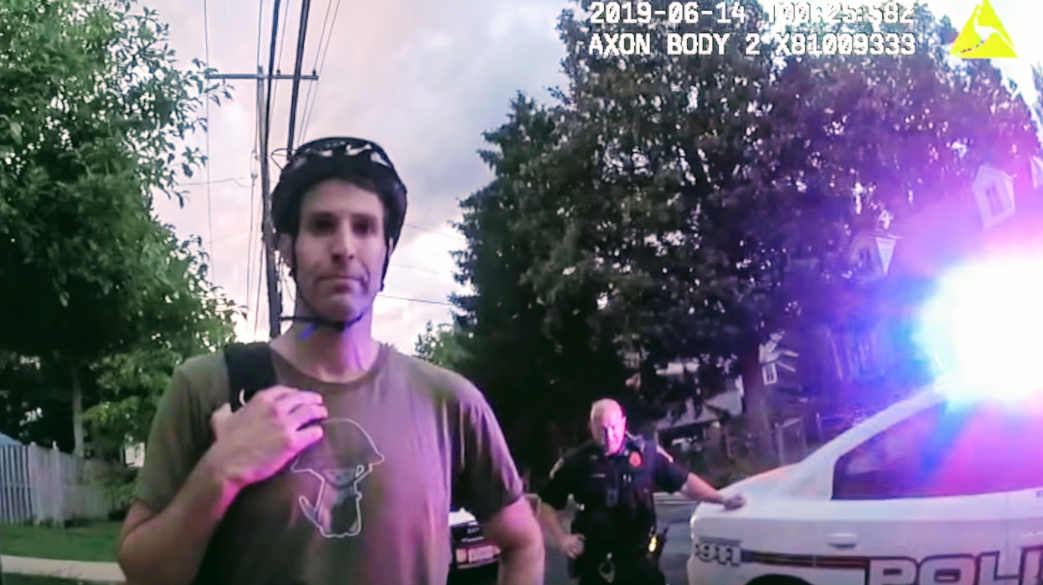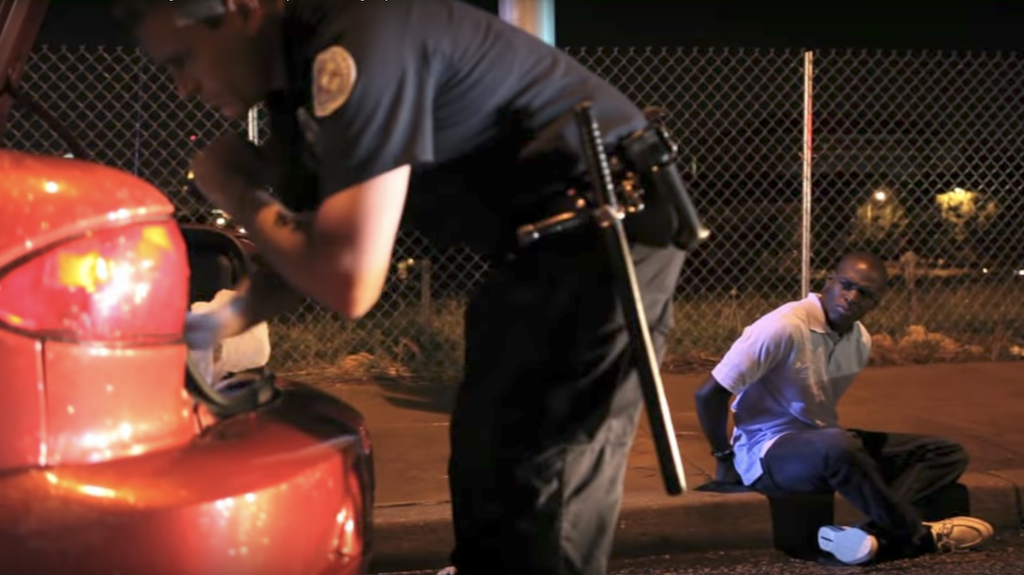Steve Silverman and I will be joining the popular political site FireDogLake this evening for a webchat about our latest film 10 Rules for Dealing with Police. Please join us from 8:00-9:30ET for what I’m sure will be a lively discussion. Just click into FireDogLake.com at 8:00 and register here if you’d like to comment or ask questions.
Questions About Your Rights?
Blog
Highway Robbery or: Yet Another Reason to Always Refuse Police Searches
This is investigative journalism at its best.
Remember: Even if police search you despite your refusal — which might be caught on the officer’s camera — your refusal can give your lawyer more tools to work with.
Blog
The Supreme Court’s Stinky Ruling on Marijuana Odor: What Does it Really Mean?
This week’s Supreme Court decision in Kentucky v. King has civil-libertarians and marijuana policy reformers in an uproar, and rightly so, but it’s not exactly the death of the 4th Amendment. Here’s a look at how this case could impact police practices and constitutional rights.
It all started when police chased a drug suspect into a building and lost him. They smelled marijuana smoke coming from an apartment and decided to check it out, so they announced themselves and knocked loudly on the door. They heard movement inside, which the officers feared could indicate destruction of evidence, so they kicked in the door and entered the apartment. Hollis King was arrested for drugs and challenged the police entry as a violation of his 4th Amendment right against unreasonable searches.
In an 8-1 decision written by Justice Alito, the Court determined that an emergency search was justified to prevent destruction of evidence, even though police created the risk of such destruction by yelling "Police!" and banging on the door. The determining factor, in the Court’s view, was that police had not violated the 4th Amendment simply by knocking on the door. Since the subsequent need to prevent destruction of evidence was the result of legal conduct by the officers, the events that followed do not constitute a violation of the suspect’s constitutional rights.
Blog
How to Stop a Police Search (Texas Style)
We just added this gem to our growing Success Stories page…
I recently got pulled over by the Texas Highway Patrol for an expired registration.
The cops double-teamed me — one at the passenger-side window and one at the driver’s side window, both talking to me at the same time, trying to confuse me. Each took turns sticking their heads as far as they could inside the car, looking around, and inhaling deeply.
After about five minutes of continuous sniffing, I finally asked one of the officers if everything was okay. "Just making sure you don’t have any weapons. It’s a safety thing. You mind if we take a look around?"
Of course, I knew the response. "I know you’re just doing your job, but I don’t consent to any searches."
About ten minutes into the encounter, one of the cops excitedly pointed at my cup holder. "Sir! What’s that white residue on your cup holder? I need to be sure that’s not something dangerous!"
I explained that the white residue was dust — dead skins cells and detritus that you normally see in a dirty-ass car like mine.
Anyway, I kept cool, asserted my rights in a calm manner, didn’t consent, and drove away without being searched. Not that I had anything to hide, but it felt good to assert my rights. Thanks for helping me do that.
— Paul from Texas
Blog
Why Refusing a Police Search Helps Protect You in Court
 San Francisco Examiner reports on the latest in a series of controversies surrounding constitutional violations by SFPD officers:
San Francisco Examiner reports on the latest in a series of controversies surrounding constitutional violations by SFPD officers:
Private attorney Robert Amparan said at a news conference Wednesday at Public Defender Jeff Adachi’s office that a judge had just thrown out his client’s felony marijuana possession for sale case because video evidence contradicted the officers’ testimony in court and statements on the police report.
Amparan said 23-year-old McLaren Wenzell did not consent to letting the officers inside his apartment at 33rd Avenue and Geary Boulevard on March 1. He said the officers did not immediately identify themselves as police and did not have a constitutional basis to search the apartment.
As we work to educate the public about how to properly exercise constitutional rights during police encounters, a reaction we hear frequently is, "What’s the point? They’re just going to search me anyway." Well, as you can see in the story above, police can get busted for bad behavior, and when they do, the evidence is often declared inadmissible. Think about this: if the suspect had instead given consent for the search, there wouldn’t have been any question about the legality of the police entry, and he would have been convicted. The only reason things worked out for him is because he refused the search and relied on his constitutional rights for protection.
But the critical point here goes beyond what happened to this particular suspect in this particular case. Keep in mind that the legal significance of refusing a police search applies whether or not you’ve broken the law, and whether or not police break the law. If officers plant evidence, damage your property, or otherwise disrespect your home, it’s almost impossible to challenge their actions if you gave them permission to come inside. That’s how the law works, and the fact that police sometimes violate it gives you more reason to know and assert your rights, not less.
Blog
Flex Your Rights on Reason.tv
Flex founder Steve Silverman discusses our work with Reason’s Tim Cavanaugh:
Blog
Why you should always password protect your smartphone
 I recently moved to Los Angeles with my girlfriend, and my parents visited this weekend. Over dinner we discussed the California Supreme Court ruling which held that police officers don’t need a warrant to lawfully search mobile phones of arrestees.
I recently moved to Los Angeles with my girlfriend, and my parents visited this weekend. Over dinner we discussed the California Supreme Court ruling which held that police officers don’t need a warrant to lawfully search mobile phones of arrestees.
All four of us own a smartphone, but I was the only one who encrypted password protected mine. So I obnoxiously brandished my Android device to demonstrate how easy it is to swipe a simple pattern to turn the phone on.
My girlfriend, a UCLA MBA candidate, scoffed that it was inefficient and not worth her time. But I countered that the split-second motion quickly becomes effortless. On the other end, my parents thought they had nothing to hide. (Have I taught these people nothing!?)
For the more cynical among us, Ryan Radia at the Ars Technica blog presents a thorough analysis of the relevant court cases impacting your smartphone privacy rights. He also lays out simple strategies that can protect your mobile device from police searches, even if you’re under arrest.
His tips should be common sense to Flex Your Rights fans.
Blog
Supreme Court Debates Warrantless Entry When Police Smell Marijuana
Recent Supreme Court decisions regarding search and seizure haven’t exactly signaled an unyielding reverence for our 4th Amendment rights, so I shudder to think how the Court will rule on this:
Kentucky police were following a man who had just sold drugs to an undercover informant. They entered an apartment breezeway, heard a door slam and found they had two choices.
Behind door No. 1 was the dealer. And, unfortunately for him, behind door No. 2 were Hollis King and friends, smoking marijuana.
Smelling the drug, the officers banged loudly on King’s apartment door and identified themselves as police. The officers said they heard a noise and feared evidence was being destroyed. They kicked down the door and found King, two friends, some drugs and cash. [Washington Post]
Home searches generally require a warrant, even when probable cause exists (the smell of marijuana), but officers claimed their fear that evidence would be destroyed constituted an "exigent circumstances" exception to the warrant requirement. Ironically, however, the presence of police became known to the suspects only because the officers knocked and announced themselves. If any effort was made to dispose of evidence, it was obviously triggered by the police, who could have waited for a warrant rather than initiating contact right then and there.
If the Supreme Court upholds this search, police will be encouraged to creatively interpret any noises heard within homes they’d like to search, and it’s hard to imagine what sorts of sounds couldn’t potentially be said to indicate possible destruction of evidence. Police who hear "sudden movements" after pounding on someone’s door can claim to be concerned about destruction of evidence, but who wouldn’t make a sudden movement if cops were shouting and banging on the door? Maybe I’m just putting on some pants. Maybe I’m hastily locking my dog in the bathroom so they won’t shoot its brains out. People are going to react when disturbed in their homes and it’s absurd to strip our 4th Amendment rights based on one of many possible explanations for the movements people make when you startle them.
Keep in mind, however, that this case involved a probable cause situation in which police did smell marijuana. Even the worst possible ruling still wouldn’t give police the authority to randomly knock on doors with no evidence and perform emergency searches based on suspicious reactions from the people inside. But if the Court continues chipping away at the 4th Amendment at its current pace, I can’t blame anyone for worrying that we’re headed in that direction. Fortunately, some of the justices expressed serious concerns about giving police more leeway to perform emergency searches. This one could go either way and we’ll be sure to keep you posted.
Blog
D.C. Metro Begins Random Bag Checks
More than two years after plans were first announced, the Washington Metropolitan Area Transit Authority has finally implemented a program of random bag inspections. At unannounced checkpoints, riders will be selected at random and asked to submit to chemical analysis of any packages they are carrying. Any bags testing positive for explosive materials will be searched. Riders who are chosen for inspection may decline, but will not be permitted to enter the station with their bags.
This is essentially a modified version of a proposed program that stalled in October ’08 due to widespread outrage over the obvious civil liberties violations involved in carrying out suspicionless searches on public transit. Flex Your Rights played a leading role in opposing the program by organizing public protests and distributing informational flyers about how to refuse Metro searches. Our efforts generated significant media coverage, and even provoked frivolous legal threats from Metro itself, which the ACLU of the National Capital Area successfully rebutted.
As the months passed by without any searches, we came to believe that our campaign had been a success and that public opposition had, for once, succeeded in shutting down a shameful assault on our 4th Amendment rights. Sadly, it’s now clear that the program’s proponents were merely regrouping and revising their plans after meeting with an unexpected level of opposition.
… Continued
Blog
Flex DVDs are a perfect Christmas gift
 This is the first holiday season since the release of 10 Rules for Dealing with Police. So if you’ve got friends and family who haven’t seen it yet, now’s a perfect time to make sure they do.
This is the first holiday season since the release of 10 Rules for Dealing with Police. So if you’ve got friends and family who haven’t seen it yet, now’s a perfect time to make sure they do.
To ensure that your DVDs arrive in time for Christmas, please order by this Friday the 17th. (If you want to send a gift DVD to someone else, simply enter a separate shipping address.)
Your order not only helps your loved ones protect their constitutional rights — it makes it possible for Flex Your Rights to continue our public education work. 10 Rules has earned major media hits and created new partnerships that allow us to educate more people than ever before. Our YouTube page, for example, has reached 8 million views!
As a small organization with a modest operating budget, your support really goes a long way towards making our work possible. So please click here to place a DVD order or to make a small or large tax-deductible donation. You may also send a check donation (made out to Flex Your Rights) to P.O. Box 21497, Washington, DC 20009.
Thanks to you, 2010 has been Flex Your Rights’ best year yet! I think you’ll love what we’ve got in store for 2011.



